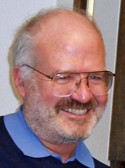
Jon Wellner
Professor of Statistics and Biostatistics
University of Washington
Jon Wellner received his Ph.D. in Statistics from the University of Washington, Seattle, in 1975. He served on the faculty of the Department of Statistics at the University of Rochester, Rochester, New York, from 1975 to 1983, and joined the faculty at the UW in September 1983. His research interests include uses of large sample theory in statistics, theory of empirical processes and probability in Banach spaces, and efficient estimation for semiparametric models.
Professor Wellner is a Fellow of the Institute of Mathematical Statistics (IMS), the American Statistical Association, and the American Association for the Advancement of Science, and a Knight of the Order of the Netherlands Lion. His research has been supported by fellowships, research prizes, and grants from the Alexander von Humboldt Foundation, the John Simon Guggenheim Foundation, and the Nederlandse Organisatie voor Wetenschappelijk Onderzoek. He served as the 1992 IMS Medallion Lecturer and the 2015 IMS Le Cam Lecturer, and he received the 2011 Senior Noether Award for his outstanding contributions to nonparametric statistics. He has served as Co-Editor of the Annals of Statistics (2001 2003); Editor of Statistical Science (2011 2013); IMS Executive Editor of Statistics Surveys (2007 2009); and as an associate editor or member of the editorial boards for the Annals of Statistics, the International Statistical Review, Probability Theory and Related Fields, and Bernoulli.
Abstracts
General Lecture
Dec 10, 2015
Empirical Distributions and Empirical Processes: a Short History
Empirical distributions have a long history in probability and statistics, starting possibly with Galton and proceeding through the work of Kolmogorov, Glivenko, and Cantelli in the 1930’s. The contributions of J. L. Doob and Monroe Donsker in the late 1940’s and early 1950’s added statistical content and depth to the early studies. Nevertheless, most of the early history and development concerned empirical distributions of real-valued random variables. This began to change in the 1960’s and 1970’s, but progress was slow until the ground breaking work of Vapnik and Chervonenkis in the late 1960’s and early 1970’s, and R. M. Dudley in the mid 1970’s. Their contributions enabled a formulation which allows for arbitrary sample spaces. The theoretical and practical developments accelerated in the 1980’s resulting in some very beautiful and statistically important developments concerning validity of the bootstrap. In this lecture I will review the history of empirical distributions and processes with a view toward the interactions with statistical questions and issues. I will also formulate some problems and open questions which I believe will be important for the future.
Technical Lecture
Dec 11, 2015
Nonparametric Estimation of Log-Concave and s-Concave Densities: an Alternative to Maximum Likelihood
The class of log-concave densities on R^d provides a natural nonparametric generalization of the class of multivariate normal distributions. The log concave class is preserved by many familiar operations, including affine transformations, convolution, marginalization, and weak limits. On the other hand, the log-concave class only include densities with sub-exponential tails. The s-concave classes (for s<0) give classes which are progressively larger as s decreases to negative infinity and which include the (multivariate) t-densities. In this talk I will discuss maximum likelihood estimation (MLE) of log-concave and s-concave densities on R and R^d. I will review some of the properties of these estimators, both good and bad. I will also discuss recent results for the Rényi divergence estimators proposed by Koenker and Mizera (2010). (This talk is based on joint work with Charles Doss, Qiyang (Roy) Han, Fadoua Balabdaoui, and Arseni Seregin as well as that of others working in this area, including Richard Samworth and Lutz Dümbgen.)